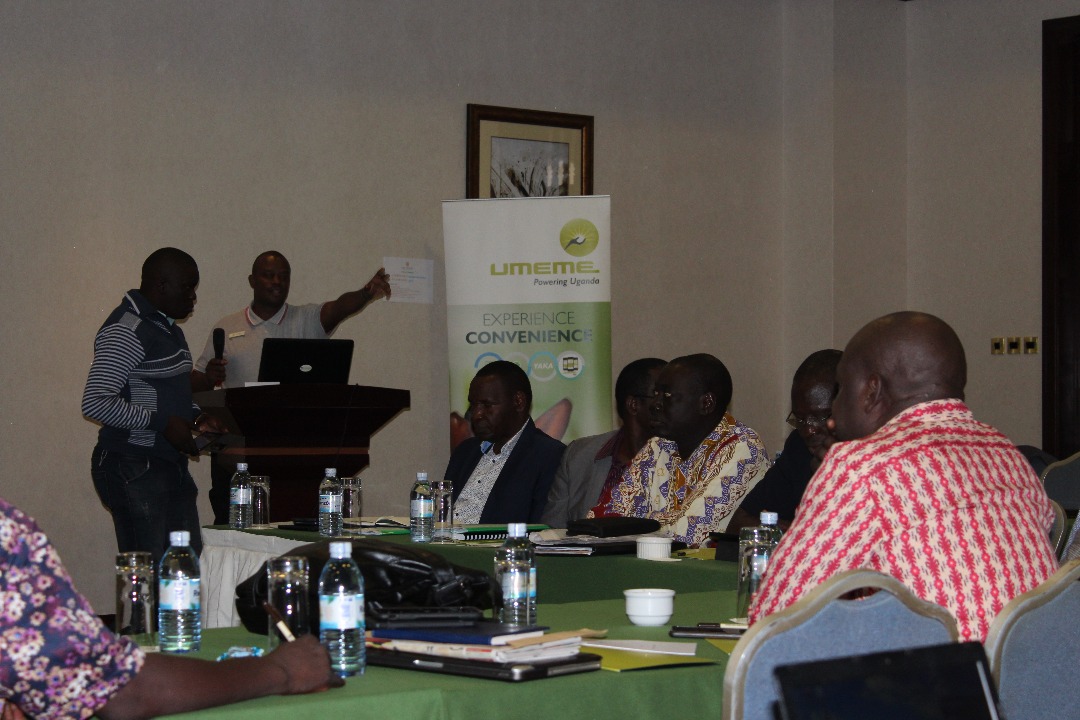An affordable power tariff must be introduced by electricity distributor, Umeme to stop customers being ripped off, a committee of MPs has said.
The Natural Resources Committee of Uganda’s Parliament and power distribution stakeholders over the weekend converged at the Lake Victoria Serena Hotel, in Kigo and discussed the power tariffs levied by the power distributor among other issues. The MPs were joined by officials from the Ministry of Energy, Uganda Electricity Distribution Company Limited (UEDCL), which in 2005 leased the electricity distribution network to Umeme, and the Electricity Regulatory Authority (ERA)
The committee chairperson Alex Byarugaba in his submission complained that the big power players like Umeme and UEDCL have been overcharging for years and have brought plans to limit bills on themselves by allegedly inflating losses and high end user tariffs.
And it says that although power generation has increased, the tariffs have raised and electricity access levels remained low.
The committee also urges energy regulator ERA to be faster and more proactive in using its powers to protect consumers from overcharging in future.
The Shadow Minister for Energy, Hon Simon Oyet said it was largely because of the high rate of energy losses and Umeme’s 20 per cent Return on Investment (ROI) that consumers are paying high end-user tariffs.
Thomas Tayebwa, the Member of Parliament for Ruhinda North said that his voters want Umeme’s ROI reduced from 20 per cent to 12 per cent thereabouts.
Another vocal committee member, Andrew Baryayanga, the Kabale Municipality Member of Parliament, said UEDCL should manage the network after Umeme’s concession expires but this proposal was water down by the UEDCL Managing Director Joseph Katera admission that while UEDCL cannot raise private capital legally, he doesn’t see government committing to inject at least $100million every year to maintain the distribution network for this enormous amount of energy.
UEDCL is the owner of the distribution network whereas the Energy ministry is in charge of policy for the electricity sector. ERA regulates the sector and sets the retail tariff, which it does after considering the tariff review applications by the electricity generation, transmission and distribution utilities.
What does the Umeme say?
Umeme Managing Director Selestino Babungi while interfacing with the Committee members at Kigo said they committed to ensuring that Ugandans have access to electricity through improved efficiency and increased electricity distribution. Currently, the company has about a million customers connected on the national grid.
“We are working to ensure that there’s increased access to electricity which will lead to further reduction in tariffs,” he said.
“Generation, transmission and distribution costs alone account for 70 per cent of the net tariff. Factoring our own investments and actual delivery of electricity to the consumer, we are at 30 per cent,” Mr. Babungi gave a background of how the tariff is met.
He continued; “Nonetheless, we appreciate that given the current times, the consumer will ultimately enjoy lower tariffs once the country stabilises with supply of much cheaper power from Karuma and Isimba at under six cents of a dollar. Several other mini hydro plants that are under construction across the country, will enable over 1600 megawatts of renewed supply into the national grid.”
The company has also increased efficiency through connecting 75.3 per cent of its customers on the on the pre-paid metering system. This has increased from 65 per cent as of December, 31 2016.
“Am proud to say that we as Umeme have invested over $500 million in capital investments since 2005,” said Mr. Babungi. “Our investments are going to pay off. The demand for power is growing by the day. The light and large industrial sector is in need of more electricity supply.”

When asked about discussions from different quarters over the renewal of Umeme’s concession , Mr. Babungi told journalists that Government also understands that with the nature of investments the power distributor are currently undertaking is worth hundreds of billions of shillings.
“We need an extended period beyond the remaining seven years of our running concessions to ensure that the shortages such as load shedding which we experienced as a country before does not re occur.”
Umeme has lately been in the news with President Museveni, castigating the company for failing to bring down the cost of electricity.
In a letter to Energy minister, Irene Muloni, President Museveni, wondered why electricity consumers were still paying for losses, which he indicated should have been eliminated after a period of time.
The company’s power losses currently stand at about 17 per cent down from 38 per cent when the company took over about 15 years ago.
However, despite the current challenges, the company has continued to register good progress in regard to new connections and revenue collection.
For feedback and story tips, contact: stephenmuneza@gmail.com, +256772544870 or Twitter @stephenkmuneza











